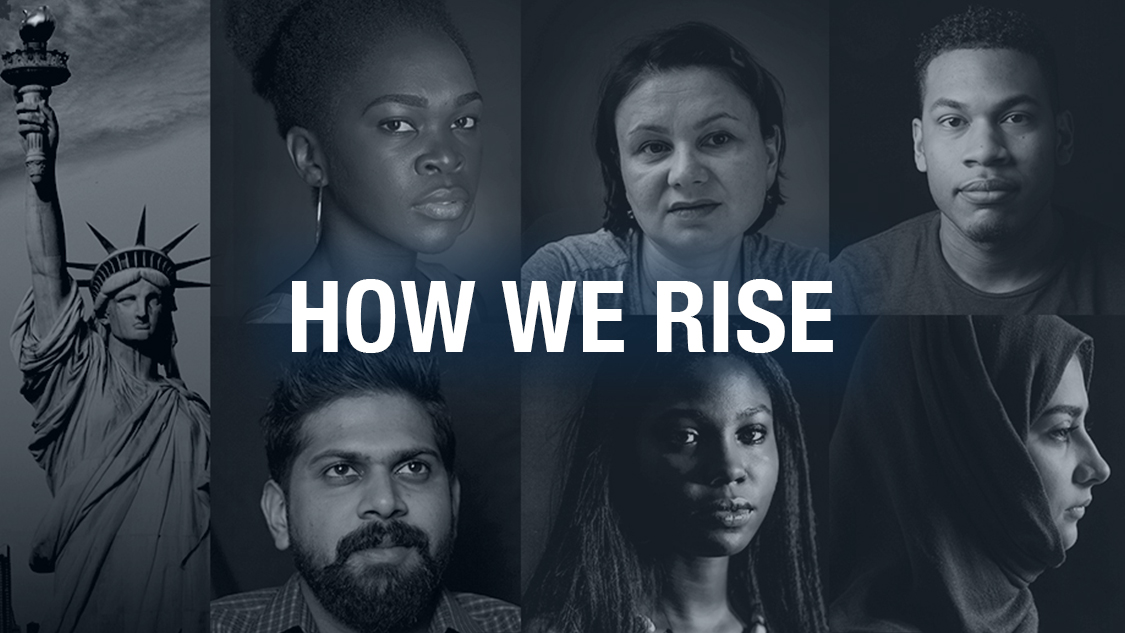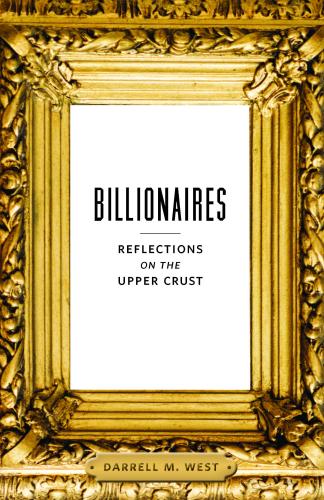When I wrote my “Billionaires” book a decade ago, I never envisioned the possibility of trillionaires. Even though income and wealth inequalities have increased over the past few decades, I did not think that level of extraordinary wealth ever would take place. We still are quite a ways away from that reality, but with Elon Musk having around $251 billion at age 52, we should consider trillionaires as a realistic option.1 Before we reach the time of having actual trillionaires, we should discuss whether an individual with that level of extraordinary financial resources would be a good thing for U.S. society.
The growth of income inequality
Data compiled by Thomas Blanchet, Emmanuel Saez, and Gabriel Zucman of the University of California at Berkeley show the recent increase in income inequality in America. In 1976, the top 10% of income earners in the United States earned 34% of the country’s total income, but that percentage rose to 48% by 2023, making the current period one of the highest points of inequality of the last century. The high wealth concentration has made it difficult to improve economic opportunity across the country and has been particularly harmful for underrepresented racial and ethnic groups that have faced major challenges in building wealth.
Recent changes in tax policy have improved the plight of the wealthy compared to the middle class and lower-income Americans. Marginal income tax rates have dropped, capital gains taxes have become more advantageous for people with money, tax avoidance is said to have increased among the wealthy, and estate tax reforms have made it easier for people to transfer wealth to their relatives. Unless these policies change, income inequality will continue to grow and make trillionaires (or those with hundreds of billions of dollars) a distinct scenario.
The ease of wealth accumulation when you already have a lot of money
To illustrate the issue, Musk’s wealth only has to grow around six percent a year over the next two decades for him to reach a trillion dollars in total assets. Indeed, that appreciation is quite achievable since the annual Standard & Poor’s 500 growth rate since 1929 averages 7.4%.
In a lecture at Brown University many years ago, media mogul Ted Turner joked that the first million is the hardest, but things get easier after that. He pointed out how social and political networking are vital for wealth accumulation because they enable money-making opportunities and personal access to policymakers that advantage the wealthy.
Economic and political consequences of extreme wealth
Some argue that wealth accumulation is a good thing for society because it rewards innovation and risk-taking. Many of the individuals who became ultra-wealthy launched new products and services, boosted business efficiency, and gave others better options than they had before. Musk’s innovations in electric vehicles, for example, clearly represent a net good for society due to their clean energy benefits.
While that reasoning may justify wealth accumulation up to a certain point, it does not hold for an unlimited amount of wealth. There are several ways in which extreme wealth no longer serves the purpose of rewarding innovation. Left unchecked, extraordinary money can lead to preferential economic treatment, advantageous political access, and unfair policy benefits. Having lots of money allows rich people to invest financial resources in lobbying and electioneering that help them accrue special benefits that are not warranted on merit grounds alone. Excessive wealth can undermine market competition, stifle new competitors, tilt rules in their own favor, and make it easy to abuse economic power. Some wealthy individuals even buy media outlets or tech platforms, which can help them with public relations and mass communications.
In Musk’s case, his stock holdings in SpaceX, Starlink, and Tesla have been aided by favorable government policies and investments. Although a private company, a considerable part of the SpaceX budget has been provided by NASA, which makes his firm a major beneficiary of public money. Starlink communications satellites are being used in U.S. military operations to maintain ties in hard-to-reach places that have poor connectivity. Tesla meanwhile has benefitted from public policies subsidizing electric vehicles and funding charging stations. Since Tesla is the leading manufacturer of electric vehicles, any policy that encourages electric vehicles will boost his wealth and move Musk closer to trillionaire status. Extensive wealth has allowed him to purchase Twitter, rename it X, and have a major vehicle for the communication of his policy views.
Politically, high levels of wealth concentration are problematic because there is empirical evidence that the wealthy have distinctive policy views compared to the general public. In general, those with a lot of money prefer low tax rates, lighter government regulation, and social policies that impede economic opportunities for the masses. For example, research by Northwestern University Professor Benjamin Page and his colleagues finds that the wealthy are less likely than the general public to support investments in education and healthcare that benefit people of modest means. At the same time, they prefer lower taxes and are more likely to make campaign contributions and contact public officials in order to promote their policy perspectives. This is unlike the past when the ultra-wealthy held policy views that were more supportive of promoting economic opportunity and closing gaps based on race, gender, and ethnicity.
Policy remedies for trillionaire wealth
Given the negative social, economic, and political ramifications of extreme wealth, we should consider policy remedies that would slow or eliminate entirely the possibility of trillionaires on the grounds that this kind of ultra-wealth is not good for American society or politics. As my Brookings Institution economist colleague Bill Gale has argued, this approach could include higher marginal tax rates for ultra-high incomes, rigorous enforcement of current tax laws, eliminating deductions for qualified business incomes, capital gains reforms, estate tax revisions, limitations on large-scale personal capital flows outside the United States as a way to discourage capital flight, and a wealth tax for mega-fortunes. It likely would take action on several of these fronts in order to move the country closer to the tax rates the wealthy historically paid.
As an illustration of one possibility, in 1999, businessman Donald Trump endorsed a one-time wealth tax of 14.25% on personal fortunes or trusts of $10 million or higher in order to pay off the national debt, cut taxes for the middle class, and ensure the longer-term solvency of Social Security. His rationale was that the ultra-wealthy could afford the tax as only “one percent of Americans, who control 90% of the wealth in this country, would be affected by my plan.” Continuing, he noted that “this plan would cost me hundreds of millions of dollars, but in all honesty, it’s worth it,” he said. “It is a win-win for the American people, an idea no conventional politician would have the guts to put forward.”
While Trump’s proposal may not be the perfect solution, it is time to have a national discussion of the desirability of trillionaires and how best to deal with ultra-wealth. Public opinion polling shows that raising taxes on the wealthy is very popular with the general public. A 2022 national poll, for example, found that 82% of Americans favored “closing tax loopholes and requiring all corporations with more than $1 billion in profit to pay a 15% tax.” In general, there is widespread public support for boosting economic opportunity, closing racial gaps, and making it easier for people to improve their financial circumstances.
We shouldn’t wait until there are actual trillionaires or even somebody with half a trillion dollars, but rather should debate what levels of wealth accumulation and inequality are acceptable and which policy remedies are desirable. Once we answer those questions, it will be straightforward to devise effective actions that deal with extraordinary wealth.
-
Acknowledgements and disclosures
Note: My thanks to Bill Gale, Keon Gilbert, and Gabriel Sanchez for their helpful comments and suggestions on this article.
-
Footnotes
- Note that the net worth figure provided on this web page fluctuates based on the performance of the market.
The Brookings Institution is committed to quality, independence, and impact.
We are supported by a diverse array of funders. In line with our values and policies, each Brookings publication represents the sole views of its author(s).








Commentary
Should America have trillionaires?
January 18, 2024